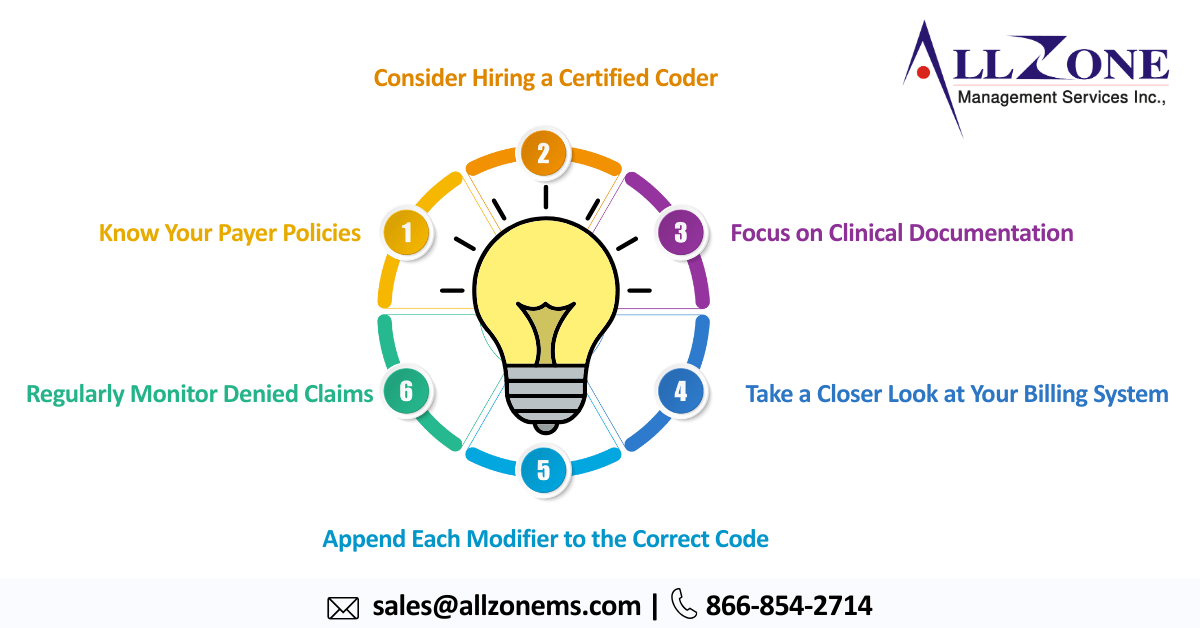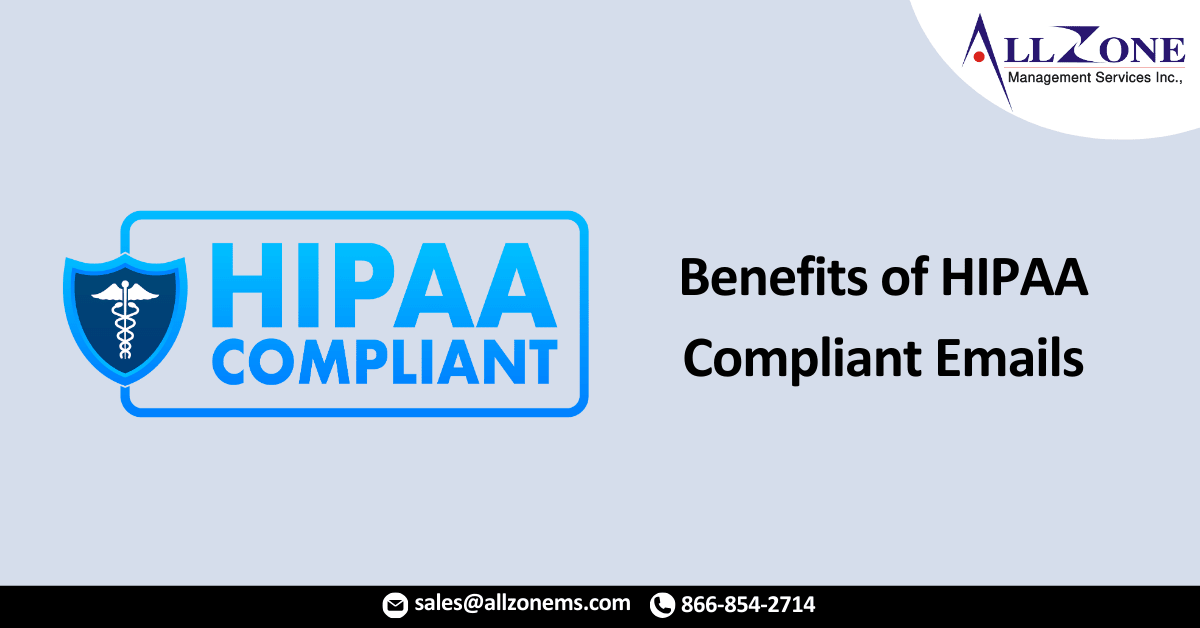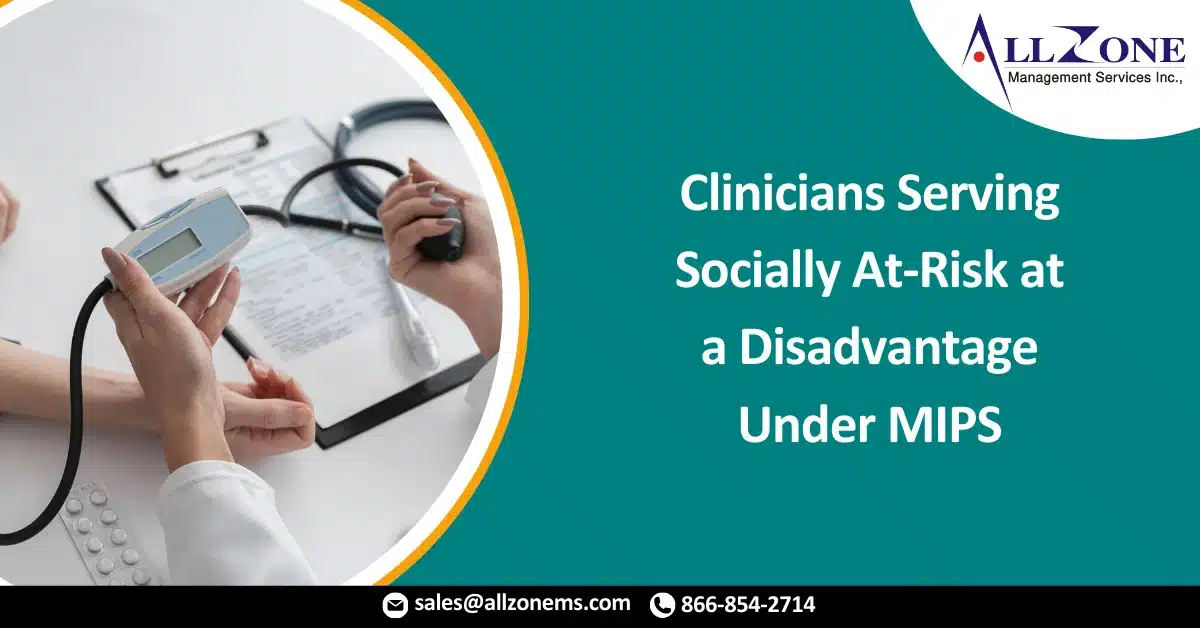Turning submitted medical claims into actual payments is a crucial phase for any healthcare practice. The time it takes to receive these payments directly impacts your financial health and operational efficiency. To maintain a healthy revenue cycle, it’s essential to reduce AR turnaround time and aim to clear your Accounts Receivable (AR) within a 30-day […]
In medical coding, CPT modifier are vital for accurate reimbursement of healthcare services. These special codes, attached to primary procedure codes, provide additional details about the complexity or extent of a service. However, using modifiers incorrectly can lead to claim denials and lost revenue. This blog post shares six key tips to help you get […]
Value-based payment models, including accountable care organizations, bundled payment models, and capitation models, can generate savings for providers and limit healthcare spending. As healthcare spending escalates in the US, stakeholders have started looking at value-based payment models to address rising costs, but many payments are still tied to fee-for-service models, according to a Health Affairs […]
To excel in value-based care, providers must lean on strategies for managing population health and skillful risk stratification. Amid the COVID-19 pandemic, organizations observed the ramifications of fee-for-service, leading to communication and revenue challenges for both providers and patients. While value-based care is not a novel idea, the pandemic greatly accelerated the adoption of this […]
CMS says it the goal is to support health equity while focusing on high-quality person-centered care. Increased leverage of telehealth for behavioral care, diabetes prevention and mitigation, and enhanced payment for vaccine administration were three out of many priorities cited by federal officials who announced the release of the Centers for Medicare & Medicaid […]
Payment collection continues to be a challenge for healthcare providers. As we previously reported for Physician’s Practice, studies have indicated that doctors only collect 12% of what they are owed at the time of service, and in two out of three visits they collect nothing upfront at all. This means that physicians are sending bills to collect […]
CMS’ Fourth COVID-19 Interim Final Rule with Comment Period (IFC-4) includes additional payment for new COVID-19 treatments, price transparency requirements for COVID-19 diagnostic tests, and coverage for potential vaccines among other provisions. Most provisions of IFC-4 became effective November 2. Hospital Payment for New COVID-19 Treatments The New COVID-19 Treatments Add-on Payment (NCTAP) will provide additional Medicare […]
Clinicians who served more patients with social risk factors such as low income performed worse in the Merit-Based Incentive Payment System’s inaugural payment year, and therefore, received unfavorable value-based reimbursement, according to a new study. The study recently published in Health Affairs found that out of 510,020 clinicians participating in the Merit-Based Incentive Payment System (MIPS) in […]
CMS is proposing changes and a three year extension to the Comprehensive Care for Joint Replacement Model (CJR), which provides a flat set of payments to hospitals for an episode of care through 90 days past patient discharge. The program was due to expire at the end of this year. The agency also wants to include outpatient […]
Sound accounts receivable (A/R) management is integral to the financial health of a medical practice. The ability to maximize collections and profitability depends on it. Thus, it’s important that practices know what processes they can implement to ensure a smooth-running AR operation. David Norris, MD, MBA, an anesthesiologist in Wichita, Kan. and author of The […]









